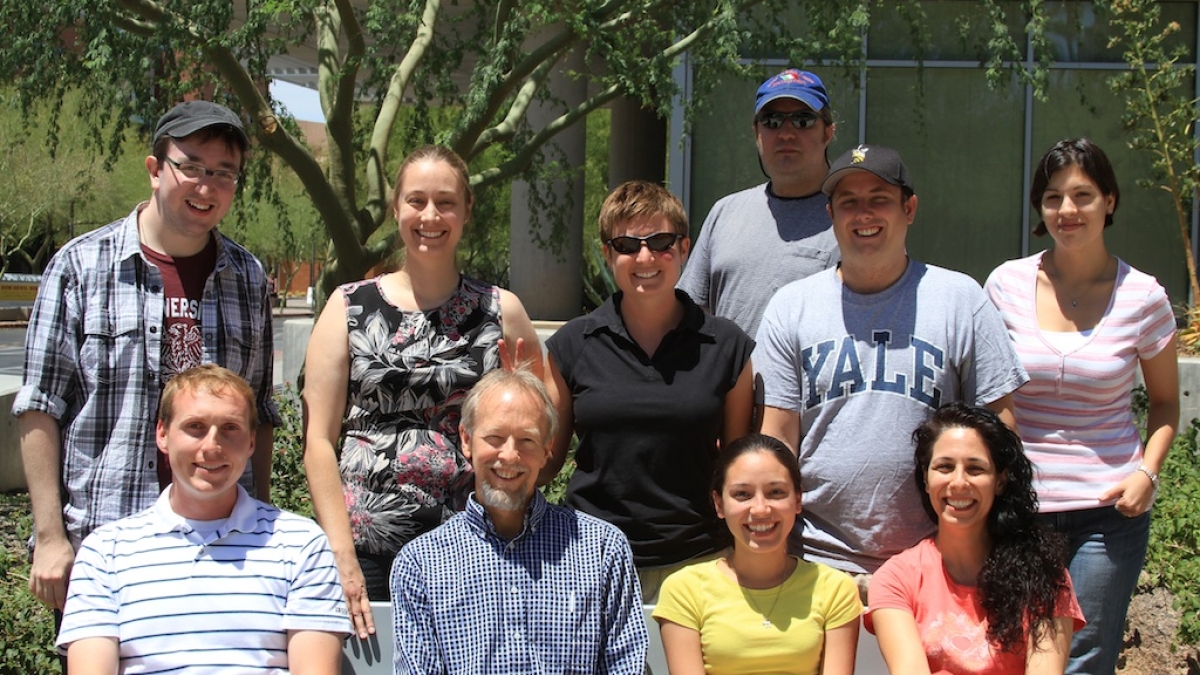Life sciences professor receives outstanding mentor award

The Arizona State University Faculty Women’s Association presented School of Life Sciences professor Jon Harrison with its Outstanding Faculty Mentorship award.
This award, given to Harrison during an awards ceremony April 2, recognizes faculty members who have demonstrated outstanding support and guidance for students – particularly for women and underrepresented groups.
“What sets Dr. Jon Harrison apart from other well-accomplished scientists is his incredible commitment to engaging highly diverse mentees in research,” said Susanne Neuer, School of Life Sciences professor and president of the association. “Jon strongly believes that everyone should play a role in the scientific process. His commitment to mentoring can only be described as awe-inspiring.”
Neuer added that 60 percent of Harrison’s undergraduate mentees are from underrepresented groups. In addition, 83 percent of students he has mentored have earned doctoral fellowships or National Science Foundation grants. Also, all of his graduate students have secured tenure-track faculty positions.
Harrison credits his own doctoral mentor with teaching him how to be a successful adviser.
“Todd Gleeson put a tremendous amount of time into my career, advising me on science, teaching, finances and life,” Harrison said. “I just try to ‘pay it forward’ to my mentees, and am confident that they will do the same. Every mentee is an individual who brings talents and viewpoints into the lab. Really, I’m learning from them.”
From the stories many of his mentees shared in their support of Harrison for this award, it is clear he is “paying it forward,” and then some.
According to Arianne Cease, a past mentee and current assistant professor in the Julie Ann Wrigley Global Institute of Sustainability, Harrison’s encouragement and wisdom were essential to her academic and professional achievements.
“As a young farm girl, I never imagined I would be where I am now,” Cease said. “I would not have the successful career, my dream job nor the capacity and confidence to truly integrate applied and basic science in this global context had it not been for Jon’s dedication and belief in me.”
Sydella Blatch, an assistant professor at Stevenson University, said she was ready to give up on becoming a college professor during her postdoctoral training, but Harrison convinced her otherwise.
After asking about edits to her dissertation manuscript, Blatch replied to Harrison’s email by saying she didn’t want to be in academia anymore. Harrison gave her his phone number so they could talk. After a two-hour conversation, he convinced her to stick with her dream.
“I was hanging on by a fingernail,” Blatch said. “I needed support from someone who knew academia, knew me and knew I would not be happy if I didn’t pull myself up with my fingernail. I don’t know who else would have been able to convince me to do that much pulling.”
Harrison also helped Kendra Greenlee, a past mentee who is now an associate professor at North Dakota State University.
“Many females in higher education feel pressure to choose between family and career,” Greenlee said. “But when I had a baby during my final year of graduate school, Jon helped me relocate to a private office where I could bring my newborn and finish writing my dissertation. He even helped me put my daughter to sleep on a few occasions. Had Jon not been so welcoming about my new role as a mother, I would have had to postpone graduation for a year.”
Despite having made such a positive impact on the lives of his students, Harrison said it’s just part of what makes him an ASU professor. He added that he will always help his mentees achieve their goals, while also trying to understand their career and life choices.

